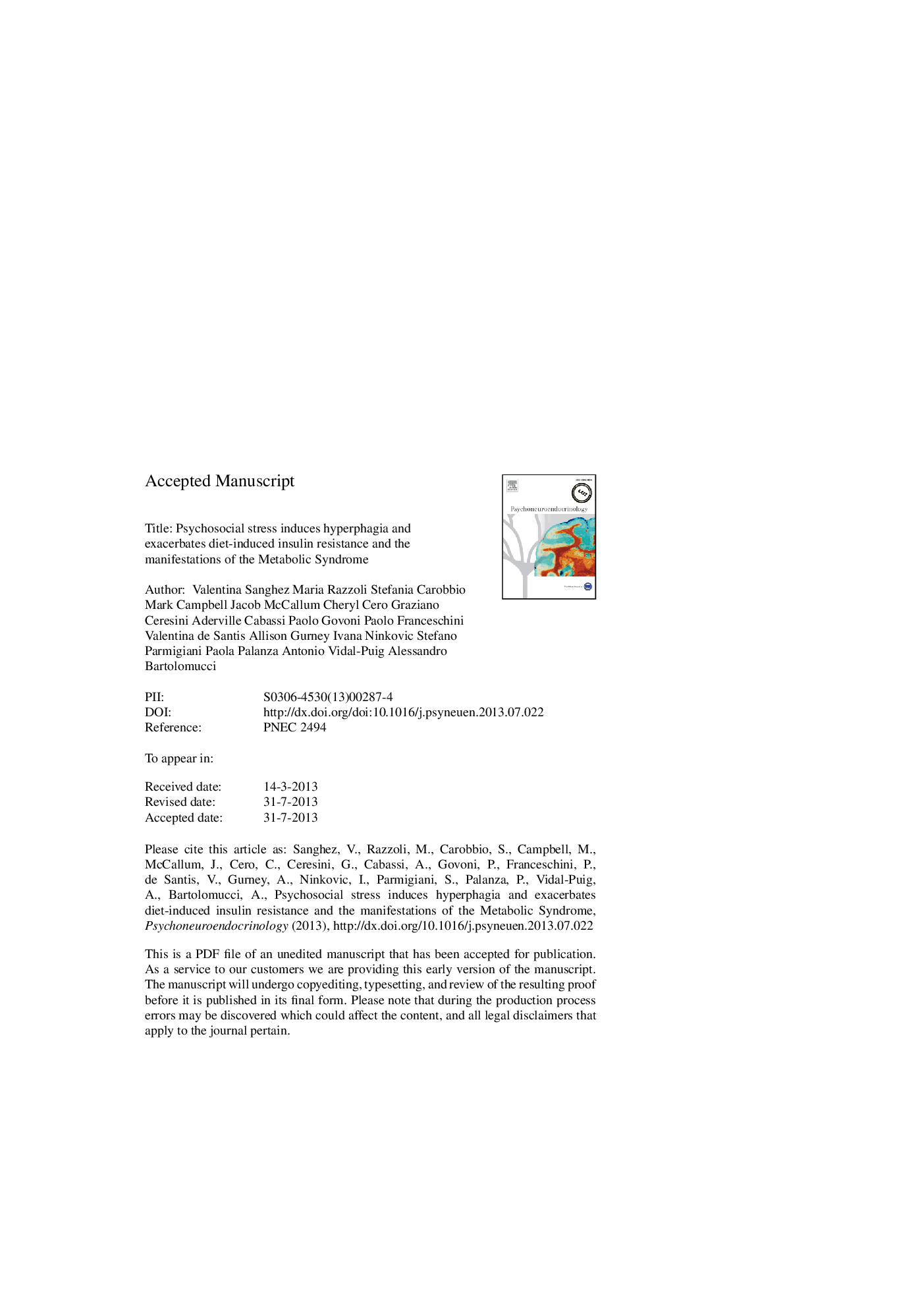| Article ID | Journal | Published Year | Pages | File Type |
|---|---|---|---|---|
| 10305750 | Psychoneuroendocrinology | 2013 | 24 Pages |
Abstract
Stress and hypercaloric food are recognized risk factors for obesity, Metabolic Syndrome (MetS) and Type 2 Diabetes (T2D). Given the complexity of these metabolic processes and the unavailability of animal models, there is poor understanding of their underlying mechanisms. We established a model of chronic psychosocial stress in which subordinate mice are vulnerable to weight gain while dominant mice are resilient. Subordinate mice fed a standard diet showed marked hyperphagia, high leptin, low adiponectin, and dyslipidemia. Despite these molecular signatures of MetS and T2D, subordinate mice fed a standard diet were still euglycemic. We hypothesized that stress predisposes subordinate mice to develop T2D when synergizing with other risk factors. High fat diet aggravated dyslipidemia and the MetS thus causing a pre-diabetes-like state in subordinate mice. Contrary to subordinates, dominant mice were fully protected from stress-induced metabolic disorders when fed both a standard- and a high fat-diet. Dominant mice showed a hyperphagic response that was similar to subordinate but, unlike subordinates, showed a significant increase in VO2, VCO2, and respiratory exchange ratio when compared to control mice. Overall, we demonstrated a robust stress- and social status-dependent effect on the development of MetS and T2D and provided insights on the physiological mechanisms. Our results are reminiscent of the effect of the individual socioeconomic status on human health and provide an animal model to study the underlying molecular mechanisms.
Related Topics
Life Sciences
Biochemistry, Genetics and Molecular Biology
Endocrinology
Authors
Valentina Sanghez, Maria Razzoli, Stefania Carobbio, Mark Campbell, Jacob McCallum, Cheryl Cero, Graziano Ceresini, Aderville Cabassi, Paolo Govoni, Paolo Franceschini, Valentina de Santis, Allison Gurney, Ivana Ninkovic, Stefano Parmigiani,
